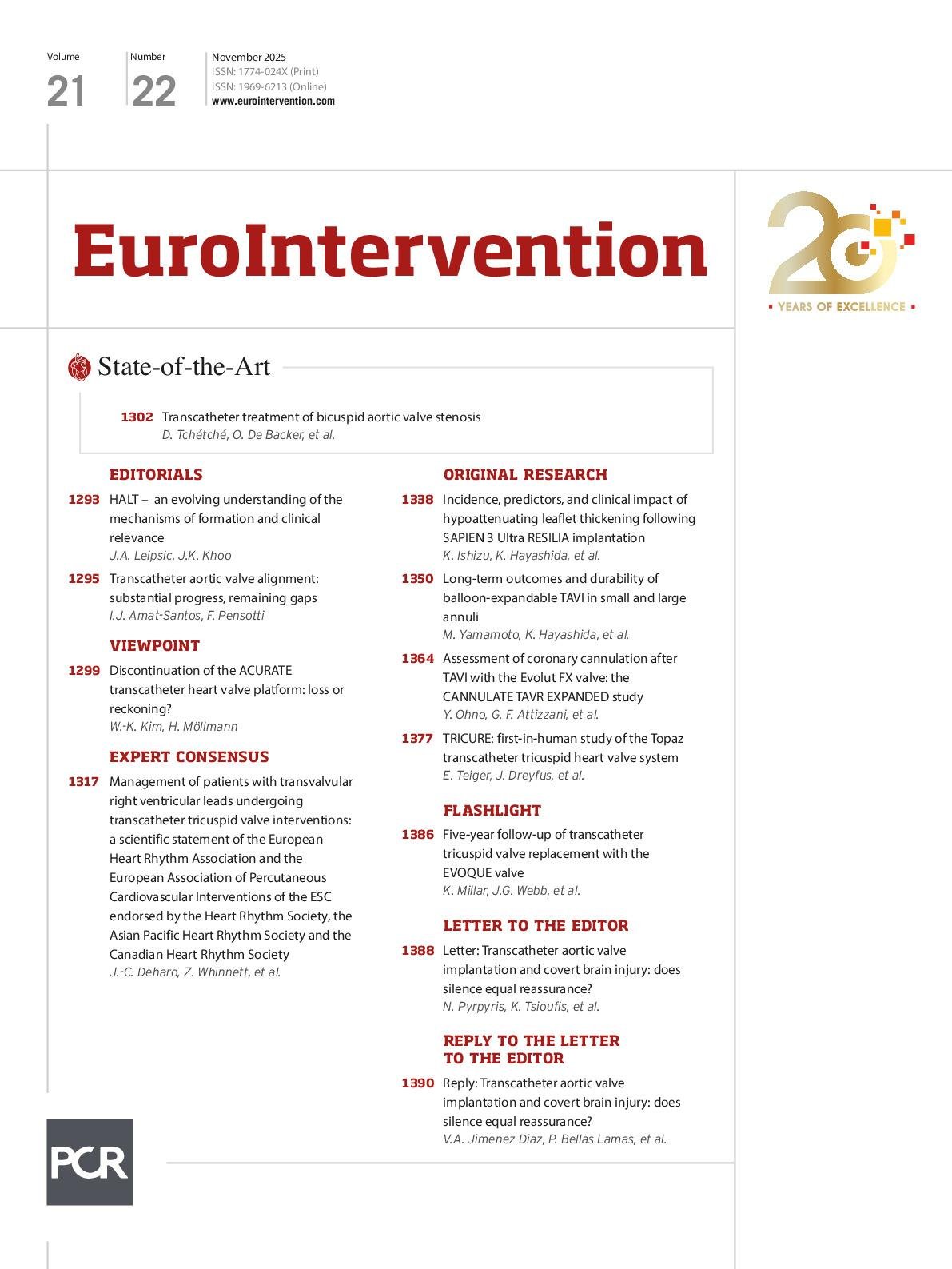We sincerely thank Dr Pyrpyris and colleagues for their thoughtful comments1 regarding our recent publication, the AUREA trial2. We fully agree with their perspective on the complex and multifactorial nature of cerebral microembolism during transcatheter aortic valve implantation (TAVI) procedures. Despite significant procedural advances, the cerebral impact of microembolic events, often silent, remains a major concern, particularly in elderly patients already at risk of cognitive impairment. In line with the authors’ comments, we emphasise the critical need to identify novel and reliable biomarkers of cerebral microembolism after TAVI. Current approaches to detect brain injury, including magnetic resonance imaging (MRI), though highly sensitive, are not always practical in daily clinical settings due to availability, cost, and patient frailty. Developing blood biomarkers such as glial fibrillary acidic protein, neurofilament light chain, tau and its peptides, and β-synuclein3 that are not only sensitive and specific but also easy to use and interpret could greatly enhance early detection, monitoring, and risk stratification of patients undergoing TAVI, as well as prediction of complications and clinical outcomes at follow-up. In addition, artificial intelligence-enhanced...
Sign up for free!
Join us for free and access thousands of articles from EuroIntervention, as well as presentations, videos, cases from PCRonline.com

